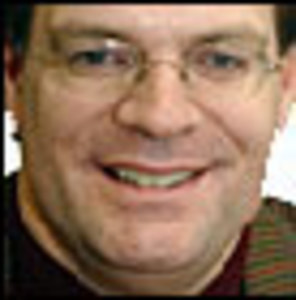
Has everything really changed in Quebec since last spring?
For a while, when the walloping of the Bloc on May 2 was followed by a battle of egos within the Parti Québécois that almost led to the party’s implosion, the answer seemed obvious.
Many things changed, but recent developments suggest that the underlying structure of Quebec politics, which has endured for decades, may be more resilient than many initially thought.
On the surface, things have changed a great deal in Quebec in 2011.
In what seemed like an instant, the federal partisan landscape was thoroughly shaken. At the provincial level, the new Coalition Avenir Québec (CAQ) appeared poised to wipe the “old parties” off the map, as the Liberals suffered from a seemingly incurable case of government fatigue while the PQ seemed destined to fall victim to its own pathological factionalism.
Although it is still early to make definite predictions, recent polls indicate that both the PQ and the Bloc may be in a position to climb up from the abyss, as François Legault’s CAQ is losing altitude.
Other factors suggest this budding trend may continue.
First, one of the assets of Legault’s party for much of last year was that it could be all things to all people: neither sovereignist nor federalist, neither left nor right. Since the CAQ officially merged with the moribund Action démocratique du Québec (ADQ), however, its de facto positioning as a right-leaning proponent of the federalist status quo has emerged more clearly.
Although Legault and a handful of other PQ turncoats claim to remain sovereignists at heart, the CAQ offers no clear vision of Quebec’s future. Also, as the right-wing former ADQ members become the CAQ’s dominant voices in the National Assembly, it will be much more difficult for Legault to woo left-of-centre voters.
Another source of vulnerability for the CAQ may be its founder’s absolute control over nearly every aspect of the party’s operations, particularly the selection of candidates. Since the demise of Maurice Duplessis’ Union Nationale, Quebecers have come to expect a modicum of democracy within their political parties, which the CAQ doesn’t seem to offer.
For PQ Leader Pauline Marois, there may be such a thing as too much party democracy but, after months of assaults on her leadership, she’s still standing, some say stronger than ever.
It remains unclear whether Marois’ resilience and her new battle-hardened image as “la dame de béton” will change the public’s lack of enthusiasm for her leadership, but it shouldn’t hurt.
Gilles Duceppe’s decision to put himself out of consideration as a potential alternative won’t hurt either.
As the PQ regains lost ground in the polls, so does the Bloc Québécois, which is now tied with the NDP in Quebec, with an edge among francophones.
Maybe the three main federal parties intend to score points outside Quebec by relentlessly prosecuting Duceppe, but he remains a well-liked figure in Quebec and a public flogging of its former leader in Ottawa may be all the Bloc needs to re-energize its base. Indeed, the NDP’s Thomas Mulcair has shown his keen political instinct in coming to Duceppe’s defence, while probably warning his colleagues sotto voce against settling scores with too much fervour.
As recent polls suggest, the NDP has disappointed Quebecers as defender of Quebec’s interests in Ottawa.
The May 2 election was rightly interpreted as a victory for federalism, but it did not change a key feature of the structure of the province’s electorate: for most voters, Quebec comes first and Canada comes second, often way behind.
Since last May, most of Harper’s policy agenda has been construed by Quebec’s mainstream opinion as a frontal assault on its interests and values. In this context, the NDP’s failure to fulfill its promises to Quebecers, and the negligible weight of Quebec in the party’s interminable leadership campaign, represent a golden opportunity for the Bloc to rebuild on solid ground before 2015.
Of course, the provincial election will come first. If Pauline Marois can put her party’s internal wars behind her (a very big “if”), she will be in a position of strength to run as the best rampart against the Harper government.
Indeed, many things have changed in Quebec since last spring, but plus ca change. . .
Pierre Martin is a professor of political science at the Université de Montréal.
Bloc Québécois and PQ showing new signs of life
Élection Québec 2012

Pierre Martin50 articles
Pierre Martin est professeur titulaire au Département de science politique de l’Université de Montréal et directeur de la Chaire d’études politiques et économiques américaines (CÉPÉA). Il est également membre du Groupe d’étude et de recherche sur la sécuri...
Cliquer ici pour plus d'information
Pierre Martin est professeur titulaire au Département de science politique de l’Université de Montréal et directeur de la Chaire d’études politiques et économiques américaines (CÉPÉA). Il est également membre du Groupe d’étude et de recherche sur la sécurité internationale (GERSI)























Laissez un commentaire Votre adresse courriel ne sera pas publiée.
Veuillez vous connecter afin de laisser un commentaire.
Aucun commentaire trouvé